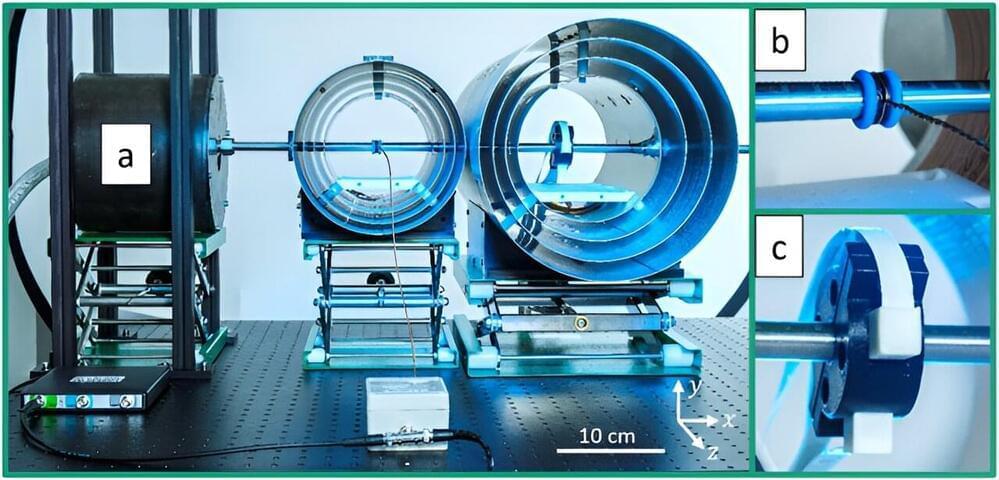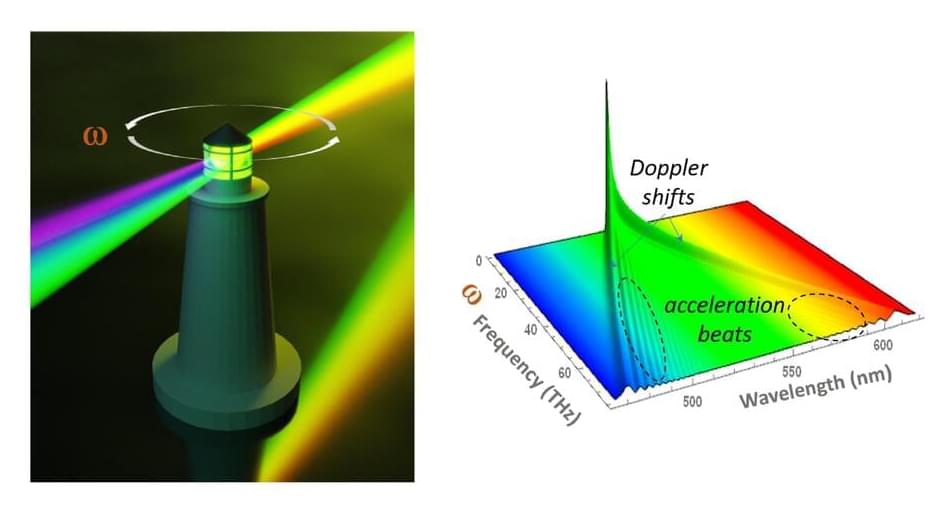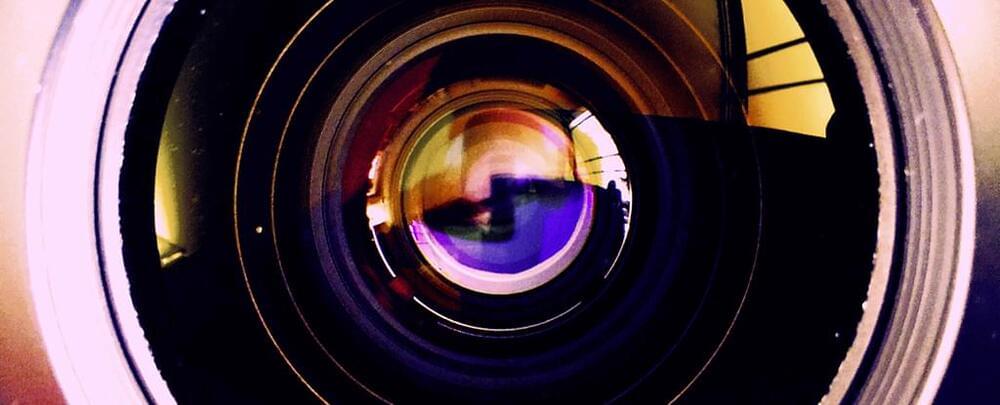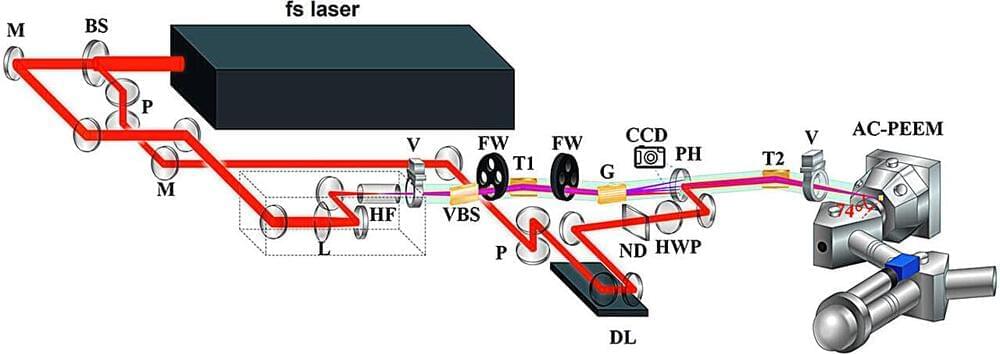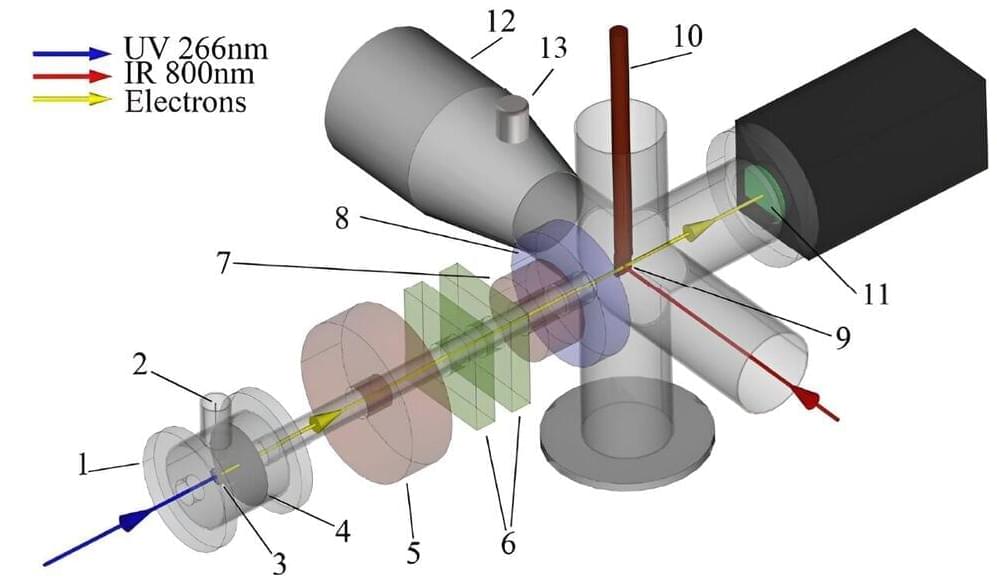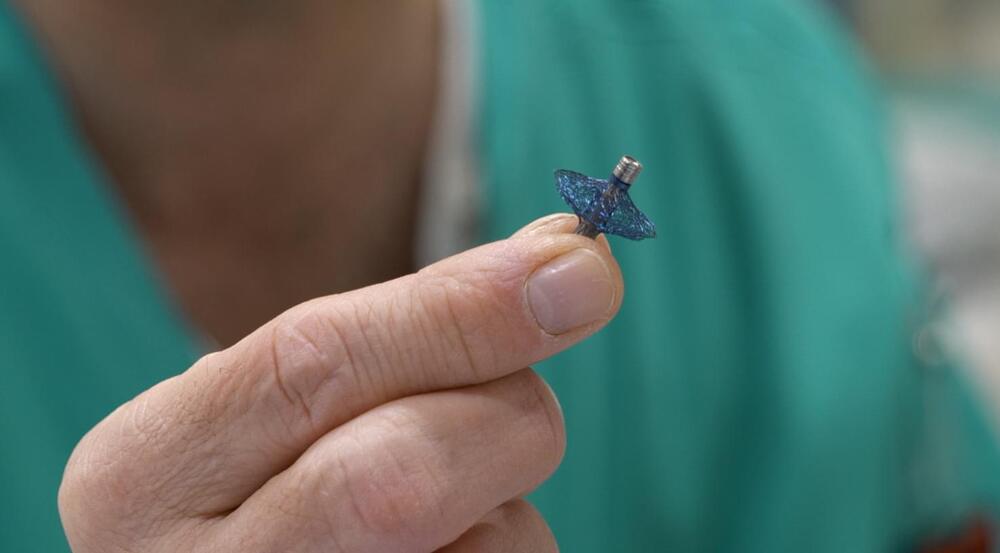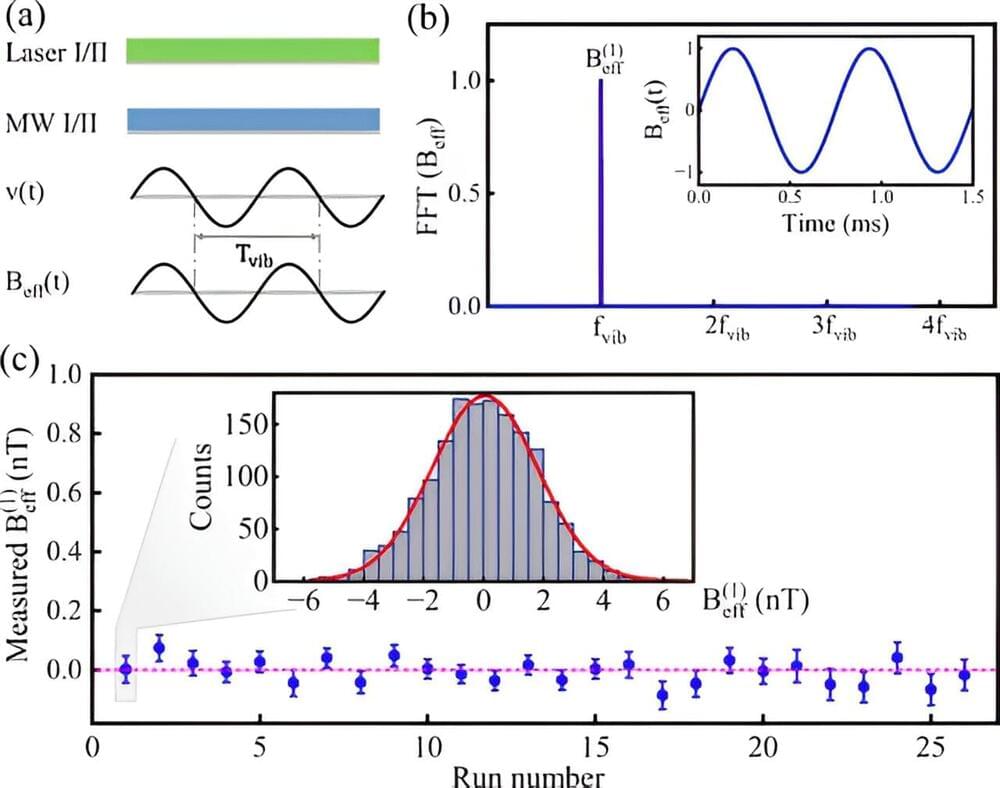Researchers at Fraunhofer IPM have developed a contactless flow measurement method based on magnetic fields. For the first time, they have been able to show the quantitative impact of the flow profile on the magnetic signal. This opens up new possibilities for improving the measurement method.
The results were recently published in the Journal of Applied Physics.
There are many manufacturing processes across various industries where flowing liquids play a key role. Controlling or automating such processes requires reliable data on the flow rate of the liquids. The magnetic field-based flow measurement technique developed at Fraunhofer IPM provides accurate flow data without any contact with the liquid.
